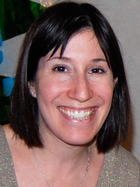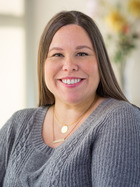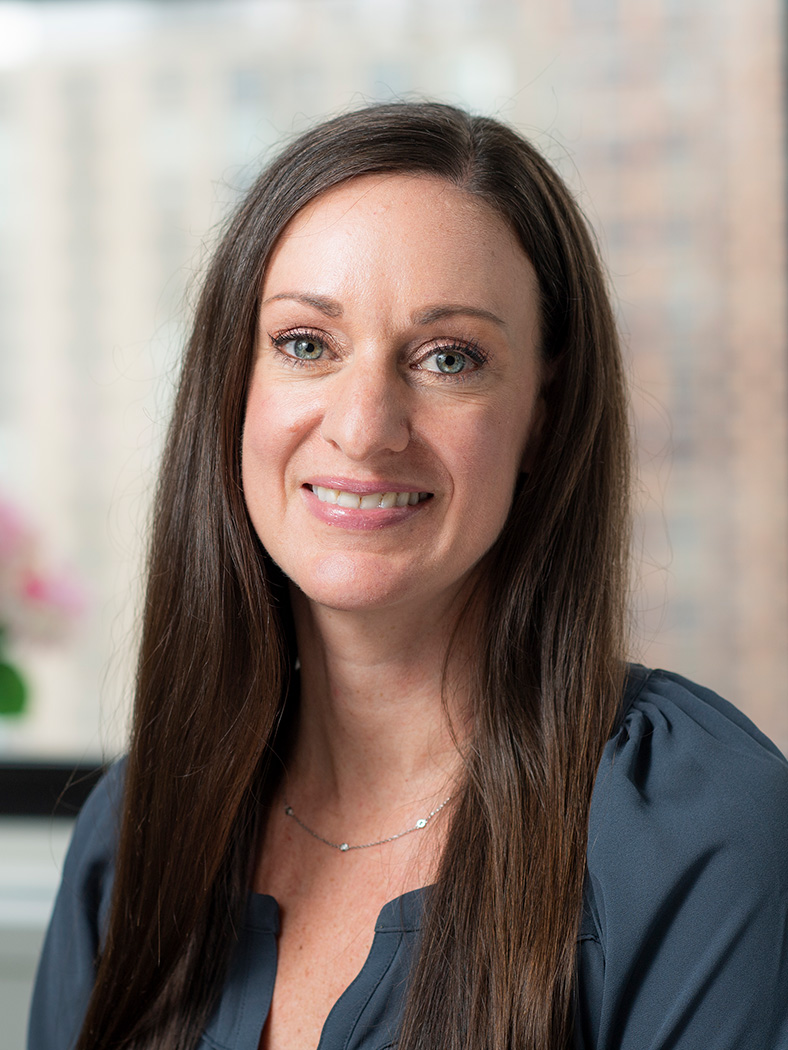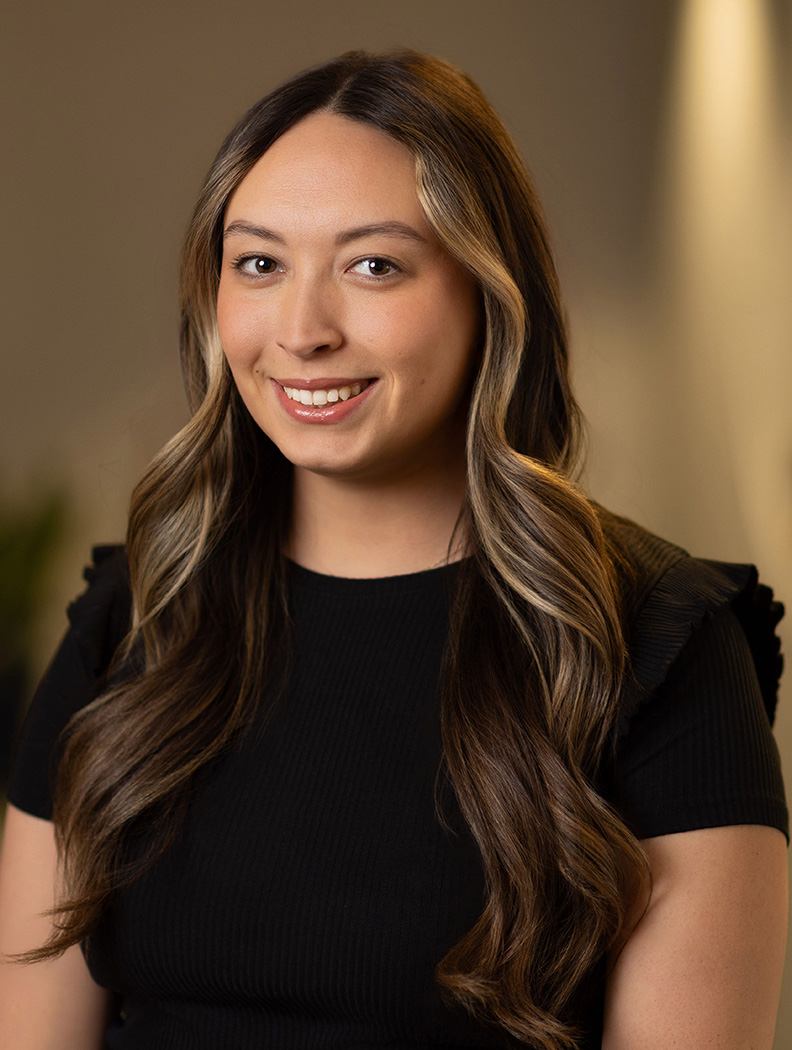For Any Cancer Diagnosis
- Q.
My 7-year-old daughter is sure she did something to cause my cancer. What can I say to her to convince her otherwise?
A.It’s normal and expected for children to fear they have somehow caused a parent’s cancer. When children don’t understand something they sometimes use “magical thinking” –the belief that one can bring about an event by thinking about it or wishing for it. By continuing to think she caused your cancer, your daughter is likely telling you she loves you, is afraid, and has no other explanation other than she must have done something to cause it.
You have already taken the first step to help your daughter, which is to take her concerns seriously. The next step is to plan a talk with her addressing her feelings and providing accurate information. Simply telling your daughter that she didn’t cause your cancer is not enough—you need to give her an explanation that she can understand.
Pick a quiet time when you and your daughter will not be rushed or interrupted, and sit next to her or hold her hand so she feels safe. It is important to praise your daughter for talking to you about her thoughts and feelings and encourage her to continue. You can also let her know that many children worry that they caused their parent’s cancer, but it’s not actually possible. Our booklet, Helping Children When a Family Member Has Cancer, offers suggestions on what you might say to your child including:
“Mommy (or daddy) is sick with an illness called cancer. The cancer happened on its own—nobody did anything to make it happen. I have very good doctors, and I am going to do everything possible to get better.”
Your daughter may accept this explanation, or may want more concrete information. Depending on her level of maturity and interest, you may use books or the internet to help her learn more about your cancer. Make sure to preview any materials or websites before sharing them with her and allow her to continue to share her feelings.
- Q.
My 5-year-old nephew has lost an eye due to retinoblastoma. He has started asking questions we do not know how to answer (e.g., What does cancer look like? Was I born with it?). How do we answer these questions and ease his anxieties?
A.When talking to children about a cancer diagnosis, it’s important to provide honest, age-appropriate answers. For instance, when the child asks if they were born with cancer, you can tell them that the cancer happened on its own–nobody did anything to make it happen. There may also be questions that you may not know the answers to and it’s okay to simply say “I don’t know,” which is an honest answer.
The reason why we stress being honest when talking with a child about cancer is that by doing so, you’re letting the child know that you can be trusted. For more information about talking to children and helping them cope with cancer please read our booklet, Helping Children When a Family Member Has Cancer.
Children may not have a clear understanding of what cancer is, which is why we recommend using arts, crafts, toys, and games to assist in talking about cancer. For example, you can take a small piece of clay and place it on a doll to show where the cancer is located. One might also draw a picture of a person to show the child where the cancer is located on the drawing.
It can be helpful to read books which are specifically written to help children understand cancer and its treatment. Kemo Shark is a downloadable comic book that is designed to help kids understand cancer and chemotherapy.
At times, counseling may be useful to assist children in working through the feelings behind their questions. If you think this might be helpful for your nephew, CancerCare’s professional oncology social workers can help you find local children’s counseling services. Please call us at 1-800-813-HOPE (4673).
- Q.
This is a hard time of year for us as my wife has cancer. Would you recommend any books about talking to and doing the best for our kids?
A.When coping with a cancer diagnosis, families often experience a variety of changes and adjustments during the holidays and other significant events. Discussing and preparing for these changes with your children can open up dialogue, elicit questions and help you to understand what your child is feeling. Although certain rituals or customs may change, it can also be helpful to honor old traditions as a way of maintaining a sense of normalcy for your children. Remember that cancer doesn’t have to be the focus of the holidays, and you have discretion over how much room cancer gets during your celebration.
Books can be helpful tools or supplements to reinforce language and ideas to help children cope with a parent’s cancer diagnosis, but should not replace a conversation. The holidays may be an opportunity to have such discussions, as you are likely joining together as a family to reflect on the past year and to make plans for the year ahead.
When selecting literature to help you talk to your children, consider your child’s age, developmental stage and maturity level. Being honest allows children of any age an important opportunity to ask questions and express how they feel. You may not have all the answers, but you can remind your child that you will always be available for them to ask.
For more information about coping with the holidays and communicating with children about cancer, read CancerCare’s Coping with Cancer During the Holidays and Helping Children When a Family Member Has Cancer, or review the following books to help you navigate these conversations:
- How to Help Children Through a Parent’s Serious Illness by Kathleen McCue and Ron Bonn (St. Martin’s Press: 1994)
- Helping your Children Cope with your Cancer by Peter Vandernoot (Hatherleigh Press: 2006)
- When a Parent Has Cancer : A Guide to Caring for Your Children by Wendy Schlessel Harpham, MD (Harper Collins: 2004)
- Q.
I have cancer and have been struggling to be a “normal” parent. My biggest challenge is disciplining my children because I feel guilty that I’m tired and not available as much to them. Is there any info out there about raising children while living with cancer?
A.Your question is one that we often hear. Without a doubt, cancer can impact your home life, and this disruption may cause a change in your children’s behaviors. Children want consistency and actually like guidelines, but it may be harder to set boundaries when you are not feeling well due to your diagnosis or its treatment.
There are some things that you can do to reduce stress, and perhaps make things a little easier in your home:
- Give hugs and say “I love you”: The primary need of children is safety and security. Let them know that they are loved and heard, and that in no way did your cancer impact your love for them.
- Allow yourself “me time”: As a parent – with cancer or not - it is vital that you remember to take care of yourself. Self-care is rejuvenating; it fuels the system both physically and emotionally. It is also a good lesson to impart to your children.
- Be on the same page: Explain to your children, in age-appropriate terminology, your cancer and what the treatment will be. Use the word “cancer.”
- Be available: Let your kids ask questions, and give honest responses.
- Explain your treatment and what the side effects might be ahead of time: Prepare your children for the “what ifs.” Hair loss, fatigue or nausea may be side effects of your treatment. Maybe they want to meet your oncologist, or see where your treatment will be. Seeing, touching and feeling can make things less scary.
- How you act and react is most likely what your children model their behavior on: A parent who reacts to their cancer by shutting down, having life revolve around the diagnosis, and creating a home life ensconced in cancer may have young ones mimicking that behavior. A parent who acknowledges the cancer, addresses the possible limitations, yet continues to live, is building resilience in their children.
- Let the school know: The more people on your children’s team, the better. Inform the principal, guidance counselors and teachers of your diagnosis.
- It is okay to ask for help: Others want to help, and letting them do so is a gift you give them. Take friends up on their offers. Think about what might help you, and ask.
- Draw a “circle of love”: Younger kids are visual. Sit down with them and help them draw a picture of all the people who love them. Let them know that if you aren’t here for them, all these other people will make sure that they are “okay.”
- Journaling: Older kids may have questions for you that they are uncomfortable asking. Give them a book they can jot their questions in and leave by the side of your bed. This will allow you to open up a meaningful discussion.
- Schedule in some fun: Cancer is part of your life, but don’t allow it to be your family’s whole life. Watch a funny movie, dance and sing in the kitchen, work on crafts. Continue to grow, learn and explore as a family.
The most important thing to remember is that while you may have cancer, your children are so happy to have you there. As a parent, you are a symbol of safety and security, and just having you nearby can bolster your children’s sense of comfort.
Two good books that might be helpful to read for more information include:
- Raising an Emotionally Healthy Child When a Parent Is Sick by Paula Rauch, M.D. and Anna Muriel, M.D.
- When a Parent Has Cancer: A Guide to Caring for Your Children by Wendy S. Harpham.
- Q.
I've been recently diagnosed and I'm not sure quite how to tell my kids. Is it ever a good idea to not tell them?
A.Disclosing a cancer diagnosis to children is never easy. It is common for parents to wonder whether their children will be better off not knowing about their diagnosis. However, children sense when something is wrong and being honest with your children will help them feel secure and confident that they can trust you. It will also prevent them from coming up with even scarier possibilities.
When disclosing your diagnosis, choose a quiet time when your children are well rested. Prepare what you would like to say beforehand so that you feel comfortable with the language you choose to use. Many parents find it helpful to have this conversation with their spouse or another adult present.
When explaining cancer, use simple and age-appropriate language. Explain your treatment and prepare your children for the changes they can expect. Reassure them that they will continue to be cared for throughout your treatment. Encourage your children to ask questions. If you don’t know an answer to their question, be honest and let them know that you will try to find out.
For more information, please read CancerCare’s publication Helping Children Understand Cancer: Talking to Your Kids about Your Diagnosis.
You may also want to read a story together about cancer and its side effects. The American Cancer Society has several books that can be helpful when explaining cancer to children:
- Our Mom Has Cancer helps children understand and cope with a parent’s cancer (ages 5-12)
- Our Mom Is Getting Better and Our Dad Is Getting Better helps children understand a parent’s special needs when recovering from active treatment (ages 5-12)
- Because Someone I Love Has Cancer offers activities to help children navigate a loved one’s cancer experience (ages 6-12)
KidsCope has a free downloadable comic book called KemoShark that helps explain cancer and chemotherapy to children.
To speak with an oncology social worker for more information and guidance regarding supporting children affected by cancer, call 800-813-HOPE (4673).
- Q.
Last week I told my son that I had cancer and we have barely spoken about it since. What can I do to help support my son?
A.As a caring parent you want to help your son understand what you are going through. Children want to know the facts and how they will be affected.
Children, and especially teens, are mostly focused on themselves and their own day-to-day life. You may notice your child is still focused on school, friends, and other activities. That doesn’t mean your child is ignoring your diagnosis. It takes time for a child to mentally process this kind of information and he may not completely understand the implications of your diagnosis until he notices physical changes or if there are disruptions in day-to-day life. Here are some age-specific strategies for communicating with children about cancer:
If your son is under 5, he is likely to ask you a question or bring up your cancer when he is most closely engaged with you one on one. His questions will most likely be brief and concrete, such as: What does your cancer look like? Does the medicine taste bad? He may be scared that cancer is contagious or that he might get cancer too. Your answers should be brief, factual and in words he understands.
Children ages 6-11 typically are more interested in the mechanics of treatment. The “killing” of cancer cells and seeing your treatment as a “battle” or “fight” – whether or not you yourself use these images – is very likely how your son will think of your experience. Some parents are comfortable using this language; others may choose to describe their experience using non-violent imagery. Either way is okay.
If your son is a teenager, he will be wrestling with a variety of conflicting thoughts and feelings. He will want to ask questions but may not want to add to your stress by asking questions or showing concern. He may feel sad about the situation but think it is “unmanly” to have that feeling. He will be certain that none of this “shows” at all but you will see it clearly in his face and demeanor. If you ask him questions he will most likely tell you that he is “fine.” Try not to force the conversation and give him space to process his emotions on his own.
No matter what age your son is, he will let you know when he is ready to talk. There may be times when you need to start the conversation because you are going to lose your hair, or need to rest more, or will be hospitalized. In these cases, be factual, brief, and use words you know your son will understand. Children and teens like to be kept in the loop and the more they are informed, the less anxious they will be when these changes happen. Also, periodically check in with your son, ask if he has questions or wants to talk in order to show him that you are comfortable talking about it and that you are available to talk whenever he is ready.
Here are some additional tips:
- Let your child know that you are always available to answer their questions
- Try to keep family time consistent. When possible, eat meals together, have a movie night, etc.
- Ask your child if there are aunts, uncles, school counselors or other professionals (social workers, psychologists) that they would like to talk to about how they are coping. Sometimes children are more comfortable talking to someone other than the person who is diagnosed
- Find age-appropriate support groups for your children that will help them feel connected to other children who have a similar experience
Here are some publication and book recommendations for further information:
- Helping Your Children Cope with Your Cancer by Peter Vandernoot (Hatherleigh Press, New York)
- Kemo Shark by Kidscope, Inc. (www.kidscope.org). A cartoon illustrated book featuring “Kemo” the shark who explains how chemotherapy works to fight cancer. Also available in Spanish. Ages 3-12.
- What About Me? A Booklet for Teenage Children of Cancer Patients by Linda Leopid Strauss. A book addressing the specific needs of teens when their parent has cancer.
- Q.
I have a 14-year-old son who doesn't seem to want to talk about my cancer at all. I know it's hard for him, but it also can't be good for him to keep things bottled up. What should I do?
A.Teens are at a stage in life when they are trying to develop their own identity, sense of self, and independence. Your son’s not wanting to talk about your cancer is a common reaction many teens have. Teens may feel that their questions or concerns might be hurtful or even scare the parent. It’s important for you to keep communicating with him and show him that it is okay to talk about feelings and ask questions. Ask him what he already knows or thinks about cancer and try to provide concise information that will clear up any misinformation he may have gotten from peers or the internet. Keep him up to date about your cancer and treatments, and let him know that if he has any questions or concerns he can always talk with you about them.
It’s important to respect his privacy and to offer him additional support that may be helpful to him. Identifying a relative like an aunt or uncle, or a teacher, coach, or school counselor with whom he can talk more openly can give him a sense of feeling more in control of his situation, and allow him to voice questions or concerns he may not want to with you.
If you haven’t done so already, I would also encourage you to inform his school. Teachers and school counselors can be supports for both your son and yourself. They can watch for and inform you of any concerns or behavioral changes your son may be displaying, and can advise you should they feel your son might need additional professional help.
The following publications may help as you navigate the sometimes tricky territory of having cancer while parenting a teen:
- CancerCare’s Helping Teens When a Parent Has Cancer
- CancerCare’s Helping Children When a Family Member Has Cancer
- How to Help Children Through a Parent’s Serious Illness by Kathleen McCue and Ron Bonn (St. Martin’s Press: 1994)
- When a Parent Has Cancer : A Guide to Caring for Your Children by Wendy Schlessel Harpham, MD (Harper Collins: 2004)
- Q.
How do I find financial help for a friend whose daughter has cancer (age 5)?
A.Families with children undergoing cancer treatment often face overwhelming financial costs. In addition to the medical costs, many parents find that their child’s intense treatment schedule can lead to loss of income and other unexpected expenses such as transportation and lodging.
There are a number of national organizations that can provide limited financial assistance for treatment-related expenses, including CancerCare and the National Children’s Cancer Society. You may want to recommend that your friend contact these organizations directly to find out if their family is eligible for assistance. You may also refer them to our fact sheet, Financial Assistance for Children and Teenagers.
It can be challenging to find help with daily expenses, such as rent, utilities and food. There may be local organizations that provide assistance for families facing serious childhood illnesses. The best way to learn about these local organizations is often the social worker at the child’s cancer treatment center. You may want to recommend that your friend find out more about local resources by dialing 211. This number will connect to the local United Way, which can link families to community programs.
Your friend is fortunate to have your support, as cancer treatment can place significant stress on a family. One of the easiest ways that you can help your friend and reduce the stress on this family is to provide practical support. You may want to ask this person directly if there are other ways you can help their family, such as offering to provide child care if there are siblings or running an errand. This type of practical assistance from a friend can provide a measure of relief to caregivers.
A cancer diagnosis has a profound effect on families, and a childhood diagnosis comes with its own unique challenges. It can be difficult to talk to young children about cancer, and to know how to help them communicate their feelings and fears. Your friend may want to check out CancerCare’s fact sheet Supporting a Child With Cancer.
CancerCare’s professional oncology social workers can also help in locating additional financial assistance and provide support and resources around caregiving for a child with cancer (800-813-4673).
- Q.
My daughter is having separation anxiety now that she knows about my cancer. She also wakes me up every night saying she is scared. She won't go to sleep without me. Any suggestions?
A.Children who have a parent with cancer often experience separation anxiety. They may be reluctant to go to school or to a friend’s house, or they may be afraid when a parent has to leave them to go to the doctor or even on an errand. Because fear is often driven by the unknown, it is important to make sure your children know about your cancer and how you will be cared for to give them as much peace of mind as possible. In addition, when you leave the house to go somewhere, tell your children where you are going and when you expect to return. Leave a contact number where they can reach you in case of emergency. By including your children in your cancer experience and daily routine, they have some control and participation, and may feel less helpless.
It’s common for children’s fears to come out at bedtime. They may feel more emotional because they are tired, or the natural separation of going into their own bedroom may trigger anxiety. If you haven’t already, set up a bedtime routine for your daughter that is comforting, such as listening to music, reading a story, or talking. Spending peaceful time with her before she falls asleep will help her relax and feel safe. It is also important for children developmentally to learn to self-soothe. Teach her techniques she can try should she wake up during the night, such as reading to herself or listening to a recorded story in your voice. Reinforce that you are safe in bed nearby. Establishing routines and communicating with her about your cancer should help alleviate some of her fears.
For more information about communicating with children about a cancer diagnosis, read CancerCare’s Helping Children When a Family Member Has Cancer and Helping Children Understand Cancer: Talking to Your Kids About Your Diagnosis. The American Cancer Society also has a helpful guide, Helping Children When A Family Member Has Cancer. There are also books that use imagery and simple language depending on the child’s age and developmental stage. See a full list of our recommended books.
You might also want to seek counseling for your daughter so that she can express and work through her fears. Our staff of professional oncology social workers are knowledgeable in children’s issues related to a parent’s diagnosis, sibling or other loved one. To speak with a social worker, call us at 800-813-HOPE (4673) or email info@cancercare.org.
- Q.
Can you advise on the best method of obtaining educational support for my daughter who has fallen behind at school and needs more specialist support to catch up with her peers? She is seven, and was originally diagnosed with cancer at age four.
A.It’s common for children who have been diagnosed with cancer at a young age to need specialized educational support during and/or after their treatment. This can be due to many factors including frequent absences from school due to treatment or hospitalizations or the lingering effects that treatment may have on learning.
First, I recommend speaking with your daughter’s teachers to express your concerns and to find out whether her teacher has concerns about her academic progress as well. Her teacher may recommend that your daughter undergoes an evaluation however either way, you may request that your child is evaluated based on your own concerns. Usually a request for an evaluation must be submitted in writing to either your daughter’s school or school district.
Your daughter will then be evaluated by a several professionals. A typical comprehensive evaluation includes testing of academics, attention, memory, language, psychosocial and other areas of development. As part of the evaluation, the school district may request supplemental information from your daughter’s doctor or oncologist. After the testing, members of the school or school district will meet with you to discuss the results. Depending on the state you live in, there are specific qualifications for eligibility for educational support services. If your daughter qualifies for services, an Individualized Educational Plan (IEP) will be developed and services will then be initiated. Parents are included in the IEP development meeting. For more information about how this process works in your state, please visit your local school district’s website. You can also call your state’s department of education for additional information. If your daughter does not qualify for services after being evaluated and you disagree with the findings, you have the option of participating in a hearing process. Your school district’s office or your state’s department of education can provide more information on this process as well.
In addition to speaking with your daughter’s teachers, it is a good idea to speak with your daughter’s pediatrician regarding your concerns. If your daughter does not qualify for in-school services, your pediatrician may be able to provide information and referrals regarding arranging outside services that may be covered by insurance. He or she can also provide referrals to a child psychologist or neuropsychologist, if that’s needed.
CureSearch for Children’s Cancer has additional information on this topic in their Guidance for Parents section on their website. If you need additional support or information, feel free to reach out to CancerCare’s Hopeline at 800-813-HOPE (4673) to speak with an oncology social worker.
- Q.
I am seeking a support group for children under age 12 whose single mother is in stage 4 cancer. Please provide any available options.
A.You should check with the mother’s treatment center to see if they provide a children’s support group. You can also contact your local affiliate of Cancer Support Community in order to get more information about what type of children’s program they offer.
CancerCare provides a number of publications, including Helping Children Understand Cancer: Talking to Your Kids About Your Diagnosis that address helping children who have a family member with cancer. Communication is the number one priority, since even young children can often sense when something is wrong, and if no one explains what is happening, will often imagine something worse than it really is, or even blame themselves. How and how much is communicated depends on the child’s unique personality, but providing an ongoing chance for them to express themselves, asking questions and sharing their feelings, is helpful for children of all ages.
Finally, it’s important to let children know that even though some other things around the house are probably going to be different for a while, that the child’s parents/grandparents/family members love for them hasn’t changed a bit.
- Q.
A teacher asked me (a school social worker) how to help an 8-year-old student with his/her own cancer diagnosis and loss of hair. Any advice?
A.Children who are diagnosed with cancer face unique challenges and adjustments. Parents, teachers and other caretakers often struggle with how to explain cancer and its effects. When speaking with this child’s teacher, you may want to consider the following points.
Children understand simple and clear explanations best. Provide concrete, age-appropriate information when speaking to this student. Explain that there are special medications that they will need to take that will help stop the cancer from growing. These medications may also cause his/her hair to fall out. Some children will want to hear a more detailed scientific explanation while others will be satisfied with more general information. Reassure the child that hair loss is temporary and explore whether he/she would feel most comfortable wearing a hat, scarf or wig in the meantime.
It is common for children to feel an array of feelings when they begin losing their hair including anger, sadness, embarrassment and fear. Let this child know that it is safe to express those feelings to you and his/her teacher. Validate the way they feel and remind him/her that although it is upsetting to deal with these side effects, it means that the treatment is working hard to stop the cancer and make his/her body healthy again. You may also want to preemptively prepare this child for questions his/her classmates may ask and come up with ways the child will feel most comfortable responding. While some children would rather not discuss their diagnosis with classmates, others may be more open with regards to what they are going through. There is more than one right way for the child to interact with their classmates and understanding your student’s specific wishes can inform the way you and the child’s teacher help the child’s classmates support the child with cancer.
You may find the following books helpful when explaining cancer and its side effects:
- Chemo, Craziness & Comfort by Nancy Keene is a book for children between the ages of 6-12 that provides clear explanations about cancer and treatment.
- KidsCope has a free comic book called KemoShark that helps explain cancer and chemotherapy
The American Childhood Cancer Association provides books to families with a child with cancer free of charge.
For more information, support or guidance, call us at 800-813-HOPE (4673) to speak with an oncology social worker.
- Q.
My kids seem to be acting out more since I was diagnosed with cancer last year. I'm looking for ways to address that while still being sensitive to what they are going through. I know it's a lot.
A.Acting out is a common response that children have when a parent is diagnosed with cancer. Children will often act out in hopes to regain attention that they might feel is they are now lacking. Although it might seem appropriate to let their misbehavior slide due to the difficult circumstances, it is extremely important to maintain discipline.
Maintaining discipline reassures the child that the parent is still in control, despite being ill. A lack of discipline can actually lead the child to believe that something has gone wrong. It is best to enforce the same rules and consequences that were used prior to the diagnosis. In order to ensure stability, remain consistent when it comes to rewarding good behavior and following through with the consequences. Most importantly, communicate your love, acceptance and understanding of your children while simultaneously implementing the rules and letting them know that misbehavior is not tolerated. It can be helpful to manage their expectations by letting them know that there might be changes in your role and ability to participate in all of the things that you had prior to being diagnosed.
More information can be found in Cancer in the Family: Helping Children Cope with a Parent’s Illness, by Sue P. Heiny, Joan F. Hermann and Joy L. Fincannon or How to Help Children Through a Parent’s Serious Illness by Kathleen McCue.
- Q.
My best friend was diagnosed with cancer late last year. She has three kids, and I'm trying to figure out how I can best help her and/or her kids.
A.Navigating a cancer diagnosis can be extremely overwhelming, especially when paired with the responsibilities that come along with caring for a family. If you have a friend or family member who is diagnosed with cancer, there are many ways that you can help them. If you aren’t sure what you can do, it’s okay to ask! Check in with your friend or her caregiver regularly to see if they need help with any errands, household tasks or if they can just use some company. The patient and caregiver will often have to balance doctor’s appointments and treatments with their children’s hectic schedules. This can be exhausting for anyone, let alone someone going through treatment. Some ways to assist are to offer to drop off or pick up her children from school or extracurricular activities. If your friend simply needs time to rest, offer to babysit her children once or twice per week. It could also be helpful to provide them with meals if needed. Always be sure that you will be able to follow through with your offers before committing.
Creating a schedule can be a productive way to ensure that your help remains frequent and consistent. You can coordinate with other friends, neighbors or co-workers who are willing to help with the tasks. For example, one friend can bring dinner on Tuesdays and Thursdays, while another friend picks up her children from school on Wednesdays. You might consider using an online scheduling tool such as My Cancer Circle to help keep track. Always assume help is needed, even if you are aware of other people helping out. Your support and encouragement can go a long way!
- Q.
Are there books written specifically for children that can help them understand and cope with a parent's cancer diagnosis?
A.After talking to your child about a cancer diagnosis, books can be a helpful follow-up to encourage learning more about cancer, exploring feelings and asking questions. It can also be a nice opportunity to spend quiet time together or give your child some autonomy to learn independently. Books or other publications are available for different age groups and developmental stages. It is important to choose books that are appropriate for your child by not only looking at the recommended age on the book, but also by looking through the book in its entirety.
CancerCare offers publications and fact sheets:
- Mom or Dad Has Cancer… Now What?
- Helping Children Understand Cancer: Talking to Your Kids About Your Diagnosis
- Helping Teenagers When a Parent Has Cancer
- Helping Children When a Family Member Has Cancer (booklet)
Suggested Books for Children
- Mom and the Polka Dot Boo Boo tells a story about a young mother’s journey through breast cancer (ages 2-5)
- Our Mom Has Cancer helps children understand and cope with a parent’s cancer (ages 5-12)
- Our Mom is Getting Better and Our Dad is Getting Better helps children understand a parent’s special needs when recovering from active treatment (ages 5-12)
- Because Someone I Love Has Cancer offers activities to help children navigate a loved one’s cancer experience (ages 6-12)
- A Tiny Boat At Sea: How to help children who have a parent diagnosed with cancer By Izetta Smith (all ages)
- Our Family Has Cancer Too! By Christine Clifford. A cartoon illustrated book that describes a family’s experience with cancer and how they coped. Ages 3-16.
- Life Isn’t Always a Day at the Beach By Ganz High Five Publishing. A cartoon illustrated workbook for kids to color themselves to help kids learn and understand their feelings about their parent’s cancer. Ages 4-13.
Kids Konnected has great resources for children and teens. They offer a teen book called Love Sick, which is a collection of thoughts and feelings shared by teens whose parent had cancer.
KidsCope has a free comic book called Kemo Shark to help kids understand cancer and chemotherapy.
The National Cancer Institute has excellent free booklets to help teens cope with cancer, including:
If you choose to share books with your child about cancer, be sure to check in with them to see if they have questions about what they read or if they want to talk about it. Our staff of professional oncology social workers are knowledgeable in children’s issues related to a parent’s diagnosis, sibling or other loved one. To speak with a social worker, call us at 800-813-HOPE (4673) or email info@cancercare.org.
- Q.
I've recently started treatment and I'm trying to find things that can help support my 13-year-old such as groups, counseling, etc. Do you have recommendations?
A.Children and teenagers experience a range of feelings after a loved one is diagnosed with cancer and it is common for parents to wonder how they can best support their children. While some teenagers may outwardly express their fears, questions and concerns, others may be less expressive. Let your son/daughter know that you are available to talk when he/she is ready. Encourage him/her to come to you with questions and that if you don’t know an answer you will work together to find it out.
Together with your son/daughter, identify the people he/she would feel comfortable turning to for support. For example, you, other family members, teacher, school social worker, religious advisor or family friend. It can be helpful to inform your child’s teacher and school social worker about your diagnosis so that they can provide additional support to your son/daughter at school.
In addition to individual support, teenagers can benefit from participating in a support group. Teenagers often feel isolated and alone as they cope with the cancer diagnosis of a loved one and support groups provide the opportunity for teenagers to meet others who know what it’s like to have a loved one with cancer. This gives them a safe space to express how they feel, give and get support from their peers and learn healthy coping skills.
The Cancer Support Community lists support centers in several states that provide support groups for children and teens. You may also want to speak with the social worker at your hospital or treatment center about local services available for children and teens.
The American Cancer Society may also provide a listing of support services available in your area. They can be reached at 1-800-227-2345.
To learn more about supporting a teen when a loved one has cancer, please read Helping Teenagers When a Parent Has Cancer. An additional resource you may find helpful is our Connect Education Workshop, Helping Children and Teens Understand When a Parent or Loved One Has Cancer.
CancerCare offers free telephone counseling and support to parents who have been diagnosed with cancer. To speak with an oncology social worker for more information about finding the right type of support for your child based on his/her unique needs, call our Hopeline at 800-813-HOPE (4673).
- Q.
Are there any resources available to assist families deliver a cancer diagnosis including side effects associated with treatment to children and adults with intellectual disabilities?
A.A cancer diagnosis has a large impact on the entire family unit and it can be difficult to know how much information to share. When speaking with children about a cancer diagnosis or side effects there are a number of things to keep in mind including providing accurate, age appropriate information, how the treatment may impact their lives, and allowing the space for questions and support.
To meet the demands of a cancer diagnosis, families must alter their roles and patterns in order to balance the physical and emotional impact. Children and adults with intellectual disabilities may find change difficult, therefore it is important to communicate how any changes in routine or physical changes you may experience could impact them. What you say is as important as how you say it.
Be sure to use a calm reassuring voice and have the conversation in a safe environment. Don’t be afraid to use the word “cancer” or show them where it is on your body. It can be helpful to think and prepare in advance for these conversations. Keeping in mind the age and development of your family member, do you best to use simple, clear language or artwork. Be prepared to repeat yourself and allow for them to react in their own way. Additionally, ensure your child that you are readily available whenever they have any questions or concerns. There is no one-size fits all approach as each individual and family has different needs. Some individuals may be non-verbal or cannot rely on speech to communicate, therefore communication differs based on a person’s age, challenges and abilities.
Together with your family, identify people your loved one would feel comfortable with turning to for support. This could include other family members, teachers, social workers and friends. There are also a number of support services through treatment centers available for patients and caregivers of those impacted by cancer.
The American Cancer Society may also provide a list of support services available within your area.
The Autism Society’s National Helpline and YAI website are both a great place to learn about resources and support within your area. Here you can speak with a trained specialist who can provide support options.
You may find the following books and publications helpful when explaining cancer and its side effects:
Getting on with Cancer by Veronica Donaghy, this is a story about a woman with down syndrome whose doctors tell her she has cancer. It described her emotions in the moment as well as her different treatment options.
Going to Outpatient’s by Sheila Hollins, Jane Bernal and Matthew Gregory. This book is aimed for those with learning disabilities and designed to help explain what happens in various outpatient settings. It explores feelings about going to the doctor as well as different procedures.
What Happens When Someone I Love Has Cancer by Sara Olsher (ages 4-10) This book helps families that want to explain what cancer is and how it can impact a child’s life.
Helping Children Understand Cancer: Talking to Your Kids About Your Diagnosis
Our staff of professional oncology social workers may be able to provide additional support for you and your child. To speak with an oncology social worker, call our Hopeline at 800-813-HOPE (4673) or email info@cancercare.org.
- Q.
My 12-year-old grandson has cancer. He’s in his second chemo cycle and his hair is beginning to fall out. He’s got a positive attitude but it is tough. If I let him shave my head bald, would that be beneficial to him?
A.Firstly, I would like to acknowledge that as a grandparent, it’s natural for you to feel a connection to your grandson’s well-being, and witnessing him go through this challenging situation can be particularly painful. Seeing the physical effects of the cancer treatment, including hair loss, can evoke feelings of sadness. It’s important to remember that these emotions are completely normal and valid. Naturally, during moments like these, you may find yourself wanting to “do” something to help alleviate the situation.
Just like adults, when children experience hair loss it can be very distressing. Cancer treatment and side effects look different for every child and often cannot be prevented. Hair loss due to treatment can impact self-image, confidence and overall emotional wellbeing. During this time, it can be helpful to discuss these changes with the child and other family members so they know what to expect. In addition to this, you can ask them directly, how they would feel about this decision. Checking in with their feelings will be an important consideration when making this choice.
Once you know that hair loss is expected or occurring you can plan ahead. Discuss with your family member what they would like next steps to be. Do your best to use clear, simple language when talking with children while providing them with different options. Every person is different and has different needs so there is no right or wrong option. If they choose to shave their head it can be helpful to take a picture with how their hair is usually worn, so if they would like a wig in the future a hair stylist can get a better idea of what they are looking for. If they wish to keep their hair as long as possible, take time to experiment with different hats or scarves to find whatever helps with their confidence. Do your best to be patient, this can be a stressful process for all involved.
As caregivers there are a number of ways to provide support to someone experiencing side effects to cancer treatment. It’s important to accept and validate patients’ feelings, and provide a space for them express themselves. Hair is a meaningful part of our identity, losing that can change how we relate to others. Be sure to allow an outlet for their feelings. That can include sports, art, music etc. Hair loss is usually temporary and often grows back several months after treatment ends. It’s also important to know that following hair loss, hair can grow back a different color or texture.
You may find the following wig resources helpful to children and teenagers affected by hair loss.
It can also be helpful to reach out to individual and peer support so children know they are not alone. This can be found at your child’s treatment center or some of the additional resources below.
Our staff of professional oncology social workers may be able to provide additional support for you and your family. To speak with an oncology social worker, call our Hopeline at 800-813-HOPE (4673) or email info@cancercare.org.
For Breast Cancer
- Q.
How do I tell my 5-year-old child that my mother-in-law has breast cancer?
A.I am sorry to hear of your mother-in-law’s diagnosis. Many adults struggle with how to tell children about a family member’s cancer in an age-appropriate way, and it is normal to have some anxiety about the conversation. First, it is important to consider your own feelings and how they may impact the conversation you have with your child; try to find a time to talk when you and your child are feeling calm and the environment is quiet. It can be beneficial to use the word “cancer” when informing your child, as young children may hear “grandma is sick” and have trouble differentiating grandma’s experience from a time when the child was “sick”. Be sure to reassure your child that no one did anything to cause grandma’s cancer; sometimes children may feel the cancer is a result of the child misbehaving. It is also helpful for the child to hear that cancer is not something they can “catch” like a common cold. Provide some basic information about what the treatment plan will involve and reassure that grandma has support (for example, “Grandma is going to take some very strong medicine (chemotherapy) for her cancer. The strong medicine may make her hair fall out for a little while, so you may see Grandma wearing hats. The doctors are working hard to help Grandma.”).
Keep in mind that young children can have short attention spans and allow them the time they need to process the information; they may run off to play right after you tell them, and then ask questions at another time. Some children may be sad and ask questions right away. Be sure to let your child know that it is okay to have the feelings they have about Grandma’s cancer and that they can always talk to you or ask questions. You may want to acknowledge that the adults in the family are also having feelings, to further normalize them for your child (for example, “Mommy sometimes feels sad about Grandma’s cancer. If you’re feeling sad we can talk about it together.”).
Overall, remember it is okay to not have all the answers. This likely will not be a one-time conversation but an ongoing discussion throughout your mother-in-law’s illness. The oncology social workers on the CancerCare Hopeline (800-813-4673) are here to help if you need some additional support around this discussion.
CancerCare Resources:
For Esophageal Cancer
- Q.
My husband has stage IV esophageal cancer and his prognosis isn't good. My son is worried that he is going to die, but also wonders why his dad is so "crabby" and keeps yelling at him to clean up his room. How do I help my son understand what his father is going through?
A.Esophageal cancer presents a person with especially difficult physical challenges - changing the way a person eats, swallows, and even sleeps. This may make him much more sensitive to the disorder or messiness around him, including your son’s room. In addition, physical discomfort or pain can make a person extremely irritable. It may be too difficult for your husband to talk to him right now but you can reassure your son by letting him know that his dad is going to the doctor, taking his medicine, and doing his best to get better. Esophageal cancer almost always causes a great deal of weight loss, which can be scary for children and may also be causing your son’s concerns. You can explain how you and the doctor are helping to keep dad strong. Be specific about what is being done to help dad nutritionally.
Here are other things you can do:
- Always reassure your son about how much you love him.
- If you husband is unable to talk with your son about his feelings, help him write a brief note using age-appropriate language.
- Let your son know that you will tell him what is happening so he can feel included and that he can ask you questions.
- Let your son know that no matter how messy his room gets, it has no effect on his dad’s cancer, because his behavior has no connection to his father’s illness. You may need to say this often and in different ways.
- If your son’s room gets so messy that it overwhelms him, offer to help him clean it and find ways to stay organized.
You may also find helpful tips in the book, How to Help Children Through a Parent’s Serious Illness, by Kathleen McCue (St. Martin’s Press, NY).
You can get more support about communicating with your son by calling us at 1-800-813-HOPE (4673) to speak with an oncology social worker.
For Leukemia
- Q.
My 6-year-old son is getting treatment for leukemia. He is getting so much attention right now that his older brother is feeling left out. What can I do?
A.When a child is diagnosed with cancer, it’s a frightening time for the whole family. Unfortunately, it’s not uncommon for siblings to feel like their needs are being neglected. They may feel jealous, angry, frightened, or have other strong emotions.
Here are some tips for helping siblings manage:
- Make time to talk to individual siblings. Ask them how they are doing, and take time to really listen to them.
- Invite siblings to join you in fun activities. Siblings need to laugh, have fun, and be themselves, especially during this difficult time.
- Send emails or cards to siblings to let them know you are thinking of them.
- Encourage siblings to choose a special support person. Then, help them connect with that person. Keep in mind that they may want you to be that person.
The key is not to expect that siblings will just “get over” these feelings with time. In order to maintain their strength, courage and hope, they need your love and support more than ever.
These books may be a useful when helping children who have a sibling with cancer:
- Life Isn’t Always A Day At The Beach, by Pam Ganz
- What is Cancer, Anyway? Explaining Cancer to Children of All Ages, by Karen Carney
- Chemo Crusader and the Cancer Fighting Crew, by Melodie Homer
You can also visit SuperSibs!, an organization providing support to siblings of children with cancer.
- Q.
About six months ago, my five-year-old daughter was diagnosed with leukemia and I had to leave work to take care of her. Now, I'm struggling financially and need help paying the bills. Where can I get help?
A.Children with cancer typically undergo an intense treatment schedule and their care can become a full-time job in itself for the parent or guardian. Unexpected expenses can range from uncovered treatment costs to transportation and childcare, as well as those of daily living, which also especially difficult to meet when there is a loss of income.
CancerCare, The Leukemia and Lymphoma Society, and the National Children’s Cancer Society, offer limited financial assistance for some treatment and treatment-related expenses for eligible families. The American Childhood Cancers Organization also provides a listing of possible resources.
Ask the social worker at your child’s treatment center for information on organizations in your community that assist children with serious illnesses. In addition, many large treatment centers have special funds for children to help defray the cost of treatment and related costs. Make sure you inquire about whether your treatment center has such a fund, and how you might qualify.
Finding help with the expenses of daily living is more challenging. A possible resource includes the 211 referral line of your local United Way which provides links to community programs that may offer financial assistance or practical help. You can also try negotiating payment plans for your monthly bills with your utility company, phone provider and other creditors, who may also offer assistance programs to people in need.
For additional guidance, please read our fact sheet, Sources of Financial Assistance.

 Answered by
Answered by  Answered by
Answered by  Answered by
Answered by  Answered by
Answered by  Answered by
Answered by  Answered by
Answered by  Answered by
Answered by  Answered by
Answered by  Answered by
Answered by  Answered by
Answered by  Answered by
Answered by  Answered by
Answered by